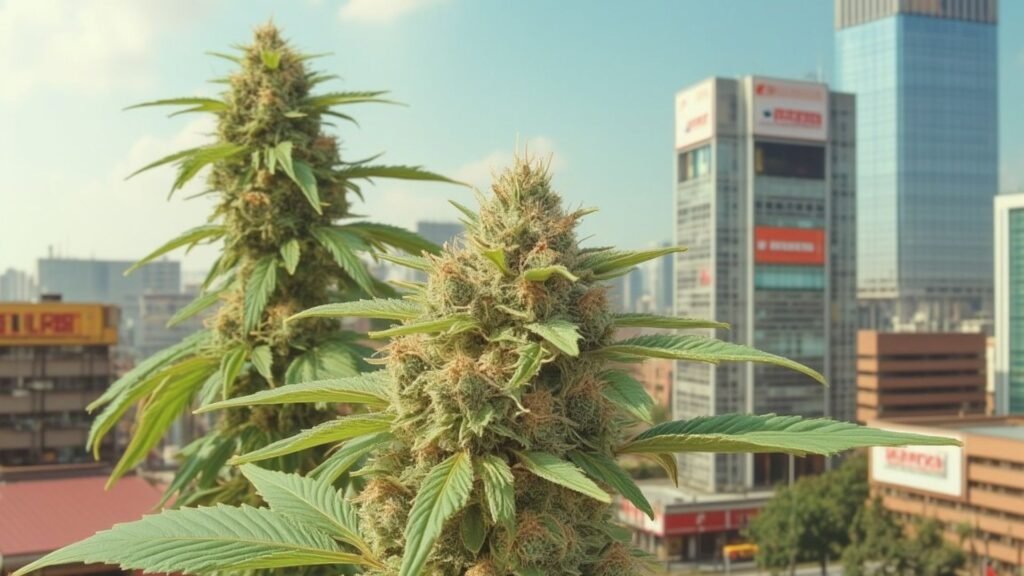The legalization of cannabis has been transformative, affecting various industries beyond agriculture and healthcare. This global shift has catalyzed economic growth, spurred job creation, and influenced policies across sectors. The evolution in industries due to cannabis legalization includes remarkable trends in agriculture, retail, healthcare, finance, and more, shaping the future of multiple markets worldwide.
1. Agriculture and Cultivation Technology
Cannabis cultivation has paved the way for innovations in agricultural practices. Legalization has driven significant growth in cannabis farms, particularly in countries like Canada, Uruguay, and parts of the United States. Cultivation technology has expanded with an emphasis on sustainable practices, such as organic farming, vertical farming, and energy-efficient grow lights, which reduce the carbon footprint of indoor growing operations.
Many agricultural technology (agtech) companies now work closely with cannabis producers to create innovative systems for pest control, water conservation, and automation. These advancements not only improve yields but also introduce practices beneficial for other high-value crops. With cannabis becoming a prominent cash crop, its influence on agriculture is expected to keep growing.

2. Retail and E-Commerce
The retail sector has witnessed a revolution with the influx of cannabis-related products. Specialized dispensaries, online stores, and wellness shops now offer a diverse array of cannabis products, including oils, edibles, topicals, and supplements. Countries with legalized cannabis markets, like Canada and the Netherlands, have well-established retail infrastructures, creating opportunities for both small businesses and large retailers.
In e-commerce, the cannabis industry has also made a mark. Many retailers now offer delivery services and subscription boxes, making cannabis products more accessible to consumers. These platforms invest heavily in security and age-verification technology, a necessity in a regulated market. As more countries adopt online sales of cannabis, the retail industry’s digital transformation continues to grow, creating a direct link between producers and consumers.
3. Healthcare and Wellness
One of the most impacted sectors from cannabis legalization is healthcare and wellness. With research ongoing into the therapeutic benefits of cannabinoids, legal markets in the U.S., Canada, and Israel have seen a surge in cannabis-based products for pain management, anxiety relief, and even epilepsy treatment. Wellness products, such as CBD-infused oils, creams, and beverages, have expanded the market, reaching consumers interested in natural, holistic health solutions.
Legalization has also spurred research into cannabinoids, particularly THC and CBD, for medical use. Countries that allow medical cannabis, like Germany and Australia, have seen increased investment in clinical trials exploring cannabis’s potential benefits. This research not only validates cannabis as a legitimate treatment option but also helps doctors and medical professionals better understand its effects, which could lead to breakthroughs in various medical fields.

4. Finance and Investment
Cannabis legalization has unlocked new investment avenues in both public and private markets. Numerous companies have gone public, including major players in the U.S. and Canadian markets, attracting global investors. The cannabis sector is one of the fastest-growing investment opportunities, appealing to venture capitalists and hedge funds interested in high-growth stocks.
Banks and financial institutions in regions with legal cannabis are also providing new services, including loans and investment products tailored for cannabis businesses. However, because cannabis remains federally illegal in countries like the U.S., the industry still faces restrictions in accessing banking services, although recent legislative changes could ease these restrictions. With global expansion, financial institutions are increasingly recognizing the potential of cannabis, allowing the industry to mature with better financial stability.
5. Tourism and Hospitality
Cannabis tourism has emerged as a new niche, drawing visitors to destinations where recreational use is legal. Places like Amsterdam in the Netherlands, Colorado in the U.S., and certain regions in Canada are known for their cannabis-friendly policies, attracting tourists interested in cannabis-related experiences.
The hospitality sector is evolving with “cannabis-friendly” accommodations and specialized tours that offer cannabis-themed activities, from farm visits to educational seminars. For example, some hotels and resorts offer “cannabis packages,” including access to dispensaries and cannabis-friendly accommodations, boosting local economies. Cannabis tourism is poised for further growth as more destinations open to cannabis, adding a unique aspect to the travel industry.

6. Real Estate and Commercial Property
The cannabis industry has had a noticeable effect on real estate, especially in areas where production, distribution, and retail are booming. Warehouses, farmland, and retail spaces are increasingly being converted into cannabis cultivation sites and dispensaries. In states like California, Colorado, and Oregon, the demand for industrial space has increased, driving up rental prices in these regions.
Investors are also focusing on real estate development specifically designed for cannabis cultivation. Real estate investment trusts (REITs) for cannabis-related properties have also gained traction, providing investors with a unique opportunity to benefit from the industry’s growth. As the industry continues to expand, real estate markets in legalized regions are expected to see further demand for cannabis-specific infrastructure.
7. Regulatory Compliance and Legal Services
Legalization has created a surge in demand for regulatory compliance and legal services tailored to the cannabis industry. Countries and states with legal cannabis require businesses to navigate a complex regulatory environment, including licensing, taxation, and quality control. Legal and consulting firms specializing in cannabis law have emerged to help businesses comply with evolving regulations.
For example, cannabis businesses in the U.S. must comply with both state and federal laws, creating an intricate regulatory landscape. This demand for specialized legal services has created a new niche within the legal industry, with firms focusing exclusively on cannabis law. As legalization spreads globally, regulatory compliance services are expected to grow, offering more opportunities for professionals in this sector.

8. Environmental Impact and Sustainable Practices
With legalization, there is a growing emphasis on the environmental impact of cannabis cultivation, particularly around water usage, waste disposal, and energy consumption. Regulatory bodies and companies are collaborating to promote sustainable practices, such as using renewable energy sources, implementing water recycling systems, and reducing plastic packaging for cannabis products.
Countries with established cannabis markets are already adopting eco-friendly standards to minimize the industry’s environmental footprint. As cannabis grows as an industry, sustainability will be crucial in ensuring long-term success and public acceptance.
Conclusion
The legalization of cannabis is reshaping industries worldwide, driving innovation and growth across multiple sectors. From agriculture and healthcare to real estate and tourism, the ripple effect of legalization has created opportunities and challenges. As the industry continues to evolve, the world will see cannabis redefine markets, supporting a trend toward acceptance, regulation, and sustainable growth for both businesses and consumers.

